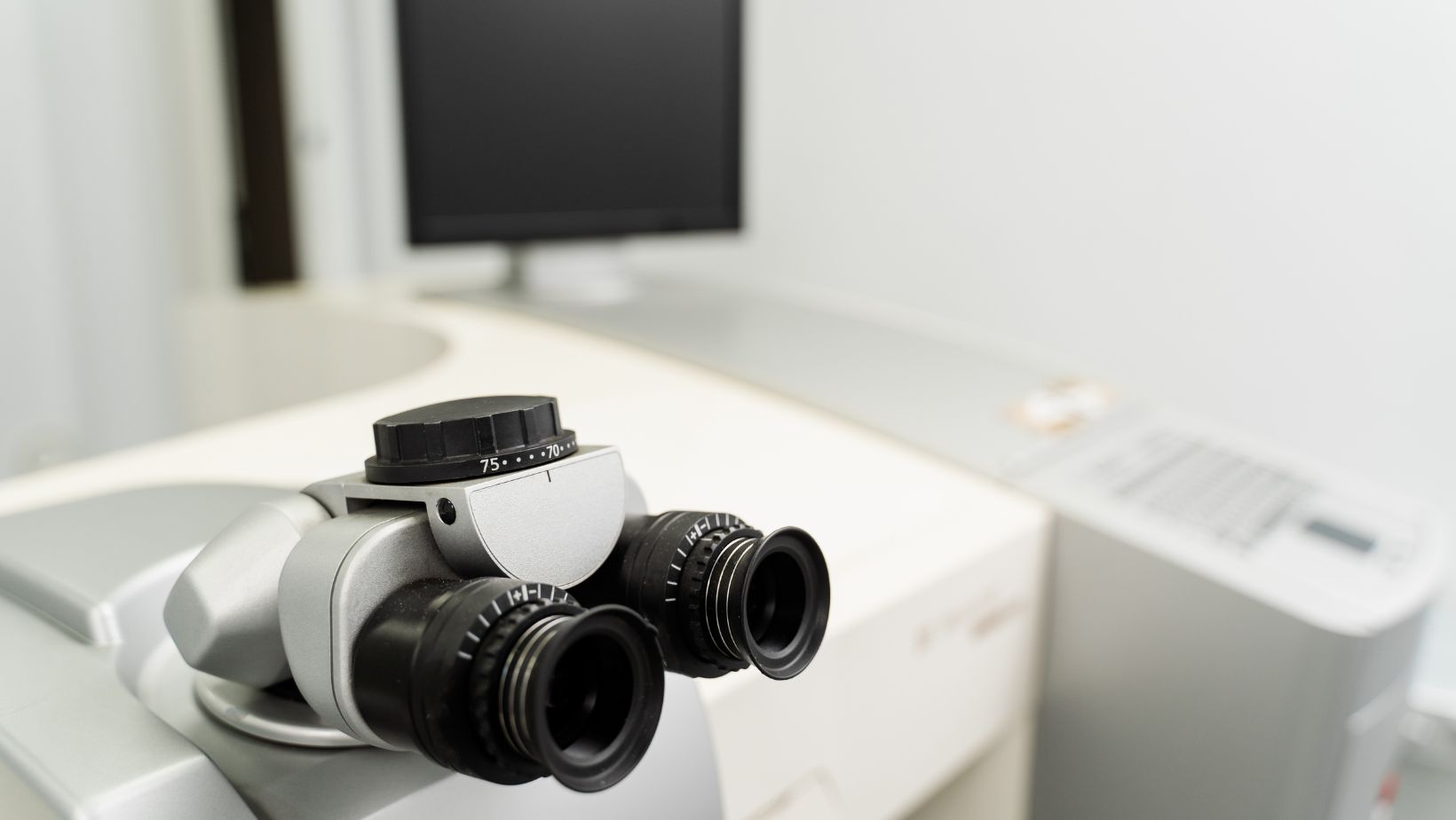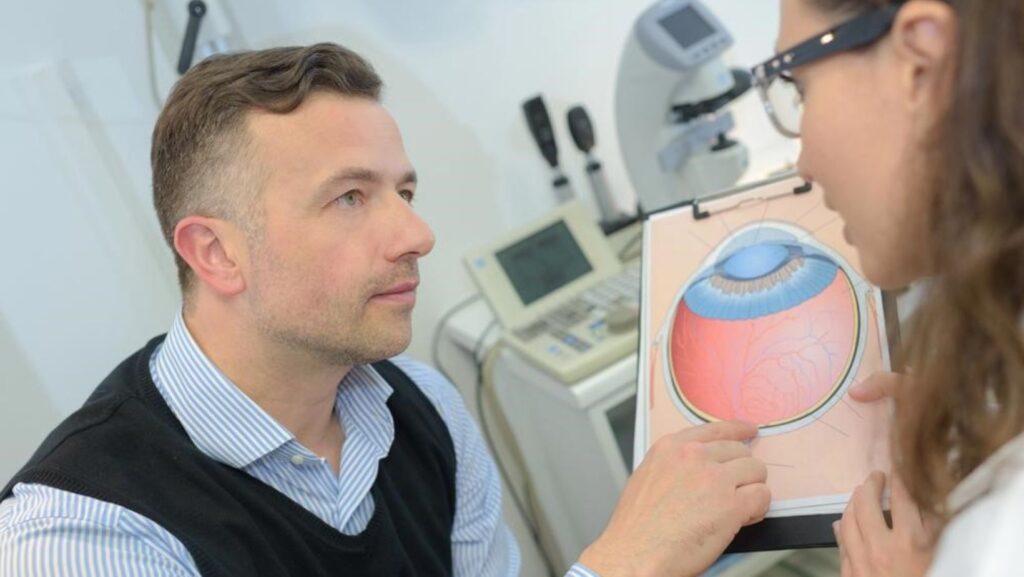Cataracts are a leading cause of vision problems, but with the help of a skilled cataract specialist Houston, restoring clarity and improving daily life is possible. These clouded lenses can make even the simplest tasks challenging, from reading to driving at night. Thankfully, advanced treatments now offer effective solutions to reverse this condition and help patients regain clear vision.
This article explains what cataracts are, why they develop, and how a specialist can address the issue. Whether you’ve just noticed early symptoms or are considering surgery, understanding your options is key to making an informed decision.
What Are Cataracts?
A cataract is a clouding of the natural lens in your eye. This lens sits behind the iris and focuses light onto the retina, allowing you to see clearly. When a cataract forms, the lens becomes opaque, preventing light from passing through properly.
 Cataracts typically develop with age, but other factors such as diabetes, eye injuries, or prolonged exposure to UV light can accelerate their onset. For most people, symptoms start gradually but worsen over time, eventually interfering with daily activities.
Cataracts typically develop with age, but other factors such as diabetes, eye injuries, or prolonged exposure to UV light can accelerate their onset. For most people, symptoms start gradually but worsen over time, eventually interfering with daily activities.
Symptoms of Cataracts
Cataracts can present differently depending on their severity. Common signs include:
- Blurred Vision: Objects may appear hazy, like looking through a foggy window.
- Glare and Halos: Bright lights, particularly at night, may seem surrounded by halos.
- Dull Colors: You might notice that colors appear faded or less vibrant.
- Frequent Prescription Changes: Glasses or contact lenses may no longer seem effective, requiring constant adjustments.
If you experience any of these symptoms, it’s time to consult a cataract specialist. Early diagnosis can help slow progression and determine the best course of action.
How a Cataract Specialist Diagnoses the Condition
A comprehensive eye exam is the first step. During this evaluation, the specialist will:
- Check your visual acuity using an eye chart.
- Perform a slit-lamp exam to examine the front of your eye under magnification.
- Use retinal imaging or dilation to inspect the back of your eye and confirm the presence of cataracts.
This thorough process allows the specialist to gauge the severity of your condition and recommend the appropriate treatment.
Treatment Options for Cataracts
Non-Surgical Approaches
In the early stages, cataracts may not require surgery. Adjusting your prescription, using anti-glare coatings on glasses, or increasing lighting in your environment can provide temporary relief.
However, these measures won’t stop the cataract from progressing. Eventually, surgical removal becomes the most effective solution.
Cataract Surgery: The Gold Standard
Cataract surgery is one of the most commonly performed and safest surgical procedures in the world. It involves removing the cloudy lens and replacing it with a clear, artificial one called an intraocular lens (IOL).
 The process typically takes about 20 to 30 minutes and is performed under local anesthesia. Most patients experience minimal discomfort and can resume light activities within a few days.
The process typically takes about 20 to 30 minutes and is performed under local anesthesia. Most patients experience minimal discomfort and can resume light activities within a few days.
Types of Intraocular Lenses (IOLs)
Choosing the right IOL is an important decision that depends on your lifestyle and vision needs. Your cataract specialist will help you select from options such as:
- Monofocal Lenses: These lenses correct vision at one distance, typically for either near or far sight. Glasses may still be needed for certain tasks.
- Multifocal Lenses: Designed to provide clear vision at multiple distances, these lenses can reduce or eliminate the need for glasses.
- Toric Lenses: Ideal for patients with astigmatism, these lenses correct uneven curvature in the eye.
Each type has its benefits, so it’s important to discuss your expectations and daily routines with your specialist.
The Benefits of Cataract Surgery
For patients struggling with cloudy vision, cataract surgery can be transformative. Benefits include:
- Improved Clarity: Colors appear brighter, and fine details become sharper.
- Enhanced Night Vision: Reduced glare and halos make driving at night safer.
- Greater Independence: Many patients find they can perform daily tasks without relying on glasses or contact lenses.
The procedure not only restores vision but also improves overall quality of life, allowing patients to enjoy activities they may have given up due to poor eyesight.
Recovery After Cataract Surgery
Recovery is typically straightforward. After the procedure, you’ll be given protective eyewear and detailed instructions for care. Most patients notice significant improvements in their vision within days, although full healing can take several weeks.
During recovery:
- Use prescribed eye drops to prevent infection and reduce inflammation.
- Avoid heavy lifting or strenuous activities for at least a week.
- Protect your eyes from bright light and avoid swimming or hot tubs for a few weeks.
Follow-up appointments with your cataract specialist will help monitor your progress and address any concerns.
When Should You See a Cataract Specialist?
Cataracts don’t always require immediate surgery, but delaying treatment can impact your quality of life. If you notice:
- Difficulty seeing in low-light conditions.
- Increasing reliance on glasses or frequent prescription changes.
- Vision problems interfering with daily activities.
It’s time to schedule a consultation. Early intervention can prevent further complications and help you regain your independence.
Choosing the Right Cataract Specialist in Houston
Finding a qualified specialist is essential to achieving the best outcome. Here are some tips:
- Experience Matters: Look for a surgeon with a proven track record in performing cataract surgeries.
- Technology Used: Advanced equipment, such as laser-assisted surgery, can enhance precision and outcomes.
- Patient Reviews: Feedback from others can provide insight into their experience and results.
A good specialist will take the time to answer your questions and tailor the treatment plan to suit your needs.
Is Cataract Surgery Worth It?
For most patients, the answer is a resounding yes. While all surgeries carry some risk, cataract surgery’s high success rate and minimal downtime make it a safe and effective choice. The ability to see clearly again is life-changing, giving patients the confidence to navigate their world with ease.
If you’re tired of living with blurry vision, there’s no need to wait. Consult a cataract specialist to explore your options and take the first step toward better eyesight.
Ready to take the next step toward clearer vision? Schedule a consultation with SuraVision today to discuss your options and learn more about the LASIK process. Call us at 713-730-2020 or book your appointment online!


